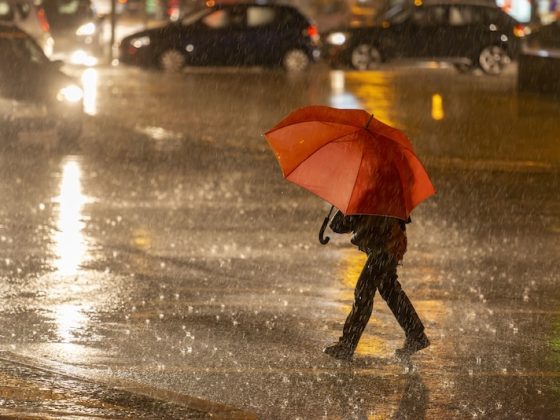Moving to France sounds like a dream, right? The wine, the romance, the cheese, the croissants! But before you start practicing your bonjour, it’s wise to consider whether living in France will be all it’s cracked up to be. If you’re not a huge fan of red tape, cold winters, and paying a lot of taxes, you might want to pump the brakes on relocating to Paris.
Coming up with great reasons to move to France is easy – just watch the hit Netflix series Emily in Paris. But it’s just as important to come up with areas of concern, and that’s what we’ve done here to make sure you make your move with your eyes wide open.
1. The Language Divide
The French are quite fond of their language, and if you’re going to live there, you’ll probably want to be able to speak it, if you plan on moving to France. The alternative will be a steady stream of withering looks of disdain. And do you really want to spend your time wandering around Paris asking, “Do you speak English?” Eventually, you’ll be buying cheese, arguing with your landlord, or filing taxes, and your high school French won’t cut it. In early 2024, in fact, France increased the French speaking requirement for a residence visa. So start learning more now or prepare to be frustrated.
2. Quality Comes with a Cost
Ah, Paris. The city of love, light, and ludicrously high rent. Think double the rates of San Francisco or New York. Not moving to Paris? Rest assured that Lyon, Nice, and even that cute little Provence village are pricier than you’d expect. The same goes for the cost of groceries, cocktails, clothing, and beyond. French goods tend to be high quality, which usually comes with a cost. Until a few years ago, The Economist ranked Paris as the world’s most expensive city, so you’ll want to arrive with deep pockets.
3. French Bureaucracy: A Test of Human Endurance
Do you enjoy waiting in lines, filling out forms, and collecting obscure documents? If so, France is your paradise! Getting a visa, opening a bank account, setting up utilities or doing anything involving paperwork will take twice as long as you think. And if they reject your documents, as they inevitably will, due to an incorrect stamp, signature, or magic spell? Guess who’s starting over. It’s a wonder any French business ever opens its doors.
4. Off With Your Head! Almost
In France, taxes aren’t just a burden, they’re a lifestyle. If you enjoy paying more of your income to the government than you keep for yourself, bienvenue! France’s tax system is complex and, frankly, brutal for high earners – up to 45 percent of income. Plus, you’ll pay big social charges and property taxes. And if you’re American? Get ready to tango with both the French and U.S. tax systems – a truly treacherous two-step.
5. The Endless Quest for Work
Finding a job in France is particularly tricky for Americans. First, the French prefer to hire EU citizens (you know, people who don’t need work permits). Second, unless you work in a highly specialized field or are fluent in French, your chances are beyond slim. The reality is that the French job market just doesn’t scream “Let’s hire the expat!” unless you bring something rare to the table. As a result, you better come wealthy or have some reliable remote work.
6. What’s Working Today?
France has a proud tradition of going on strike. It’s almost like they wake up, have a coffee and think, “It’s been a week since the last grève, let’s do another!” Trains? Canceled. Schools? Closed. Trash piling up? Yep. Strikes can range from mildly irritating to “I guess I live in this airport now.” Don’t assume a reliable commute or a simple trip to the hospital. Every week it seems like another labor union or group is ready to take to the streets.
7. French Healthcare: Great, If You Can Figure It Out
Everyone raves about French healthcare, and for good reason—it’s top-notch and way cheaper than in the U.S. But before you get too excited, remember: France loves paperwork! Getting into the healthcare system as a non-EU citizen means endless applications, waiting periods, and paying upfront and waiting to get reimbursed later. If you’re sick of filling out forms now, just wait until you need antibiotics.
8. Good Luck Connecting
The French aren’t rude—they’re just… selective. Making friends in France can take time, a lot of time. Keep in mind that customer service and dining culture do not generally favor the patron, like in the US. Parisians value privacy and tend to stay reserved and formal until you’ve earned your way into their social circle, which could take a year after moving to France. So don’t expect to become best buds with your neighbor by bonding over small talk. In fact, don’t expect small talk, ever.
9. Cold, Gray, Wet, and Humid
France is big, so the weather varies, but the winters in the north are dark and gray, which can feel like living inside a cloud. Summers, on the other hand, can get shockingly hot, especially in the south, and you probably won’t have air conditioning. The French, in their wisdom, tend to see AC as for the weak. So, unless you love sweaty afternoons and dreary winters, consider packing a fan and a bit of sunshine with your move to France.
10. Finding Your New Home
Setting aside the price, renting an apartment in France can be harder than winning the Tour de France. French landlords are notoriously picky, and they expect paperwork, proof of income, a guarantor (or three), and a 15-minute presentation (OK, not really). If you want to buy, get ready for an endless legal processes and oceans of taxes. Oh, and if you’d like your Paris apartment to come with an elevator—think again. That fifth-floor walk-up will be your new gym membership. It’s one of the perks of moving to France!
11. Is This Place Ever Open??
Work-life balance is sacred in France, meaning that the French love not working. This means a lot of places are closed when you’d most like them to be open. Fancy a few groceries on a Sunday? The shop’s closed. Want to grab a coffee at 3 p.m.? Hope it’s not during the pause déjeuner (lunch break). Expect a more relaxed schedule in general—and get used to seeing that “fermé” sign a lot more often than you’d like.
—————
So, should you still move to France? Maybe if you enjoy a bit of chaos and a touch of charm, and are willing to embrace a different way of life. Just don’t say we didn’t warn you about the strikes, the bureaucracy, the healthcare system, and all the French lessons you’ll need. Bonne chance!
About the Author
This essay is an excerpt from EA Editor David Lepeska’s 2023 book, Desiccated Land.
Contact Author
"*" indicates required fields
Stay Ahead on Every Adventure!
Stay updated with the World News on Escape Artist. Get all the travel news, international destinations, expat living, moving abroad, Lifestyle Tips, and digital nomad opportunities. Your next journey starts here—don’t miss a moment! Subscribe Now!










